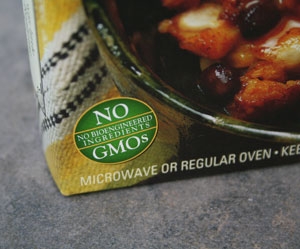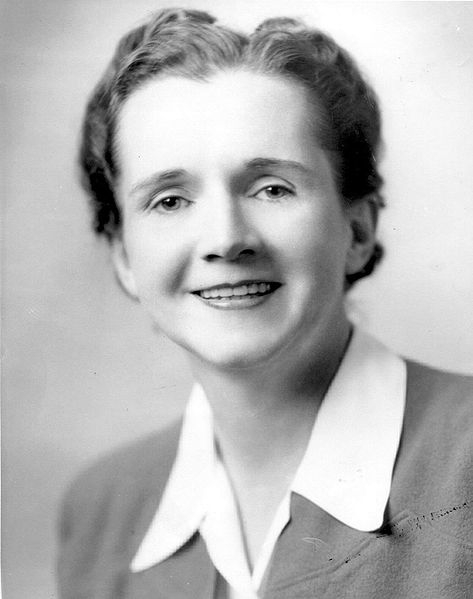Posts Tagged: GMO
GMO labeling is costly proposition for California
Proposition 37 would result in $1.2 billion in higher costs for farmers and food processors, higher prices for consumers and new regulations, according to an article published in Western Farm Press that refers to a new UC Davis study. The article is credited to the No on 37 campaign.
If passed, Proposition 37, which is on California's November ballot, would require labeling of genetically engineered food.
“The proposed regulations have no basis in science and impose rules that would have significant costs for food producers, processors and marketers, and ultimately for consumers, while providing misinformation and no demonstrable benefits,” the article quotes Julian Alston and Daniel Sumner, professors in the Department of Agricultural and Resource Economics at UC Davis.
An editorial in the Los Angeles Times notes that the work for the study was undertaken with partial funding support from No on 37.
"That doesn't mean the study is without interest for voters," wrote Karin Klein in the editorial.
A 'multi-million dollar food fight' heats up, plus other recent news coverage
The reporters called the proposition a "multi-million dollar food fight."
"All of the data that's come out from the American Medical Association and National Academy of Sciences have all agreed that the food products on the market today that are genetically engineered are safe," Van Eenennaam told the reporter
Polls show the 'Yes on Proposition 37' campaign is "way ahead" of those who oppose the initiative, "but there's a long way to go until November," the reporter said.
Vision still pays dividends after 150 years
Sacramento Bee editorial
The Sacramento Bee editorial staff called the 1862 Congress of the United States one of the most productive in American history. One of the reason was it's passage of the Morrill Land-Grant College Act July 2, 1862. The act created the world's best system of public colleges and universities for people of modest means, the editorial said. Previously most Americans had no access to higher education. California took up the land-grant offer in 1864 and the University of California was born – at Berkeley – in 1868. Later, the University Farm would become UC Davis. The Citrus Experiment Station would become UC Riverside.
Building a better, tastier tomato
Lauren Sommer, QUEST Northern California, KQED
Lauren Sommer interviewed Ann Powell, associate researcher in the Department of Plant Sciences at UC Davis, about her finding that the gene that creates "green shoulders" in tomatoes influences the amount of sugar in the ripe fruit. Powell says now that they know about this gene, plant breeders could put it back in commercial varieties.
Bees need a hand, especially in drought
Debbie Arrington, Sacramento Bee
In honor of National Honeybee Day, the Sacramento Bee paid homage to the indispensable pollinator with information about the challenges it faces. Colony collapse disorder, drought and urbanization take their toll. There was some good news: "Bees got through the winter a little better," said Eric Mussen, UC Cooperative Extension specialist, apiculture. "This spring, we saw bigger, earlier and more swarms." However, nationwide, the hot dry summer has made it a tough year for honey production.
Would Rachel Carson embrace GMOs?
Rachel Carson, the author of "Silent Spring," a book credited for advancing the environmental movement in the U.S., would have supported the use of genetic engineering in agriculture, says Pamela Ronald, professor in the Department of Plant Pathology at UC Davis. Ronald considered the possibility in an op-ed article published in Forbes.
Carson envisioned harnessing the knowledge of biological diversity — entomology, pathology, genetics, physiology, biochemistry and ecology — to shape a new science of biotic controls that would help control weeds, diseases and pests without further damaging the environment, Ronald wrote.
"Her dream of a science-based agricultural system may come as a surprise to those who believe that sustainability and technology are incompatible," the article says.
In her UC Davis laboratory, Ronald has genetically engineered rice that tolerates flooding and resists disease.
"I have to believe that, if Rachel Carson were alive today, she would reject the anti-science, fear-mongering of anti-GE campaigners," Ronald said.
UC scientist tries to refute 'woo woo pseudoscience'
UC Davis plant pathologist Pamela Ronald appeared on the Dr. Oz television show, in which the medical personality promised to tell his audience what they need to know about GMOs.
Ronald was one of three guests, and the only one to support the production and consumption of genetically modified food.
"It was a tough go," Ronald wrote in a Tomorrow's Table blog post about her television appearance. "I did my best to refute the worst 'woo woo pseudoscience,' but it was difficult."
She pointed out on the program that, after 14 years of GMO consumption - primarily in food ingredients made from canola, soy beans, sugar beets and corn - there has been not a single instance of harm to human health or the environment.
However, Ronald's point was countered on the program by Jeffrey Smith, an anti-GMO activist, who said GE crops cause infertility, organ damage and endocrine disruption. Ronald said Smith's information doesn't have a scientific basis.
"We need to make policy based on the best science," Ronald said. "I would go with scientific information rather than ideas that have been put forth by non scientists."
Ronald referred viewers to three websites that she said contain science-based information about GMOs:
Transgenic goats' life-saving potential under study in Brazil
Technology developed by UC Davis animal scientist James Murray that could significantly reduce human suffering and death from diarrhea has found a home in Brazil.
Goats genetically altered to produce milk that prevents diarrhea have been in development in Murray's Davis lab for decades, according to an article in Technology Review. However, sensitivity to the idea of bioengineered animals in the United States has severely limited research funding. Currently the project is supported with a three-year, $400,000 USDA grant to assess the risks of transgenic animals.
"The only money available is to look at environmental safety. It's a backwards way of funding the research," Murray is quoted in the article. "We haven't gotten enough to move the research forward; we are four or five years behind where we should be."
In Brazil, where diarrhea is the fifth or sixth most common killer of children under five, the government has pledged $3.5 million to establish a herd of transgenic goats and initiate human trials on their milk.
"I think it's brilliant," Murray was quoted. "We want to see it used. We don't care which country does it."
The goats in Murray's lab were engineered to express large amounts of human lysozyme, a protein found in human milk, tears and saliva that destroys the cell walls of bacteria. Drinking the milk would inhibit establishment of the diarrhea organism.
The milk from transgenic goats could enter human trials in elementary school children within two years, the article said. If it proves effective, the Brazilian researchers hope they can powder the milk and export it other countries where many children are afflicted with diarrhea.

James Murray



